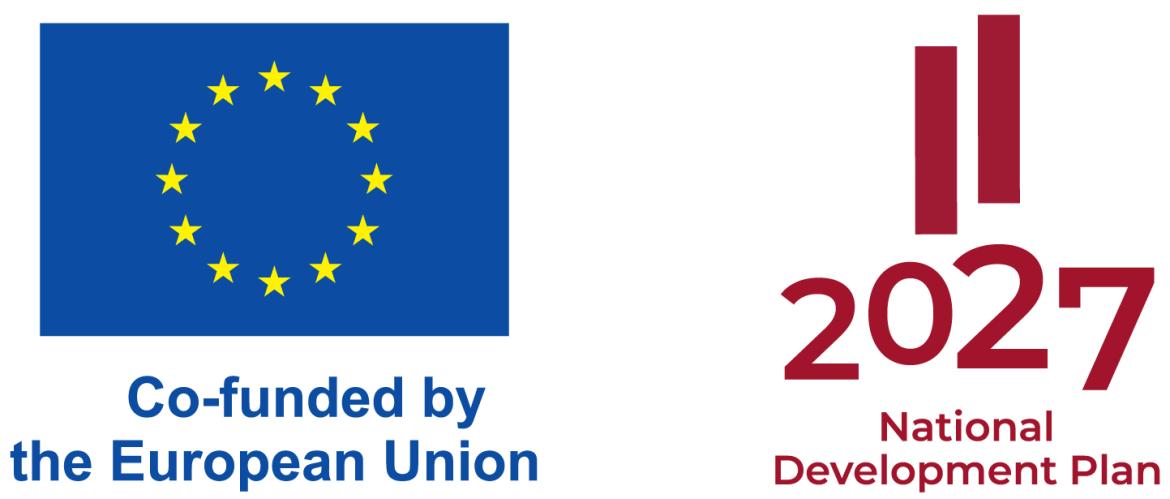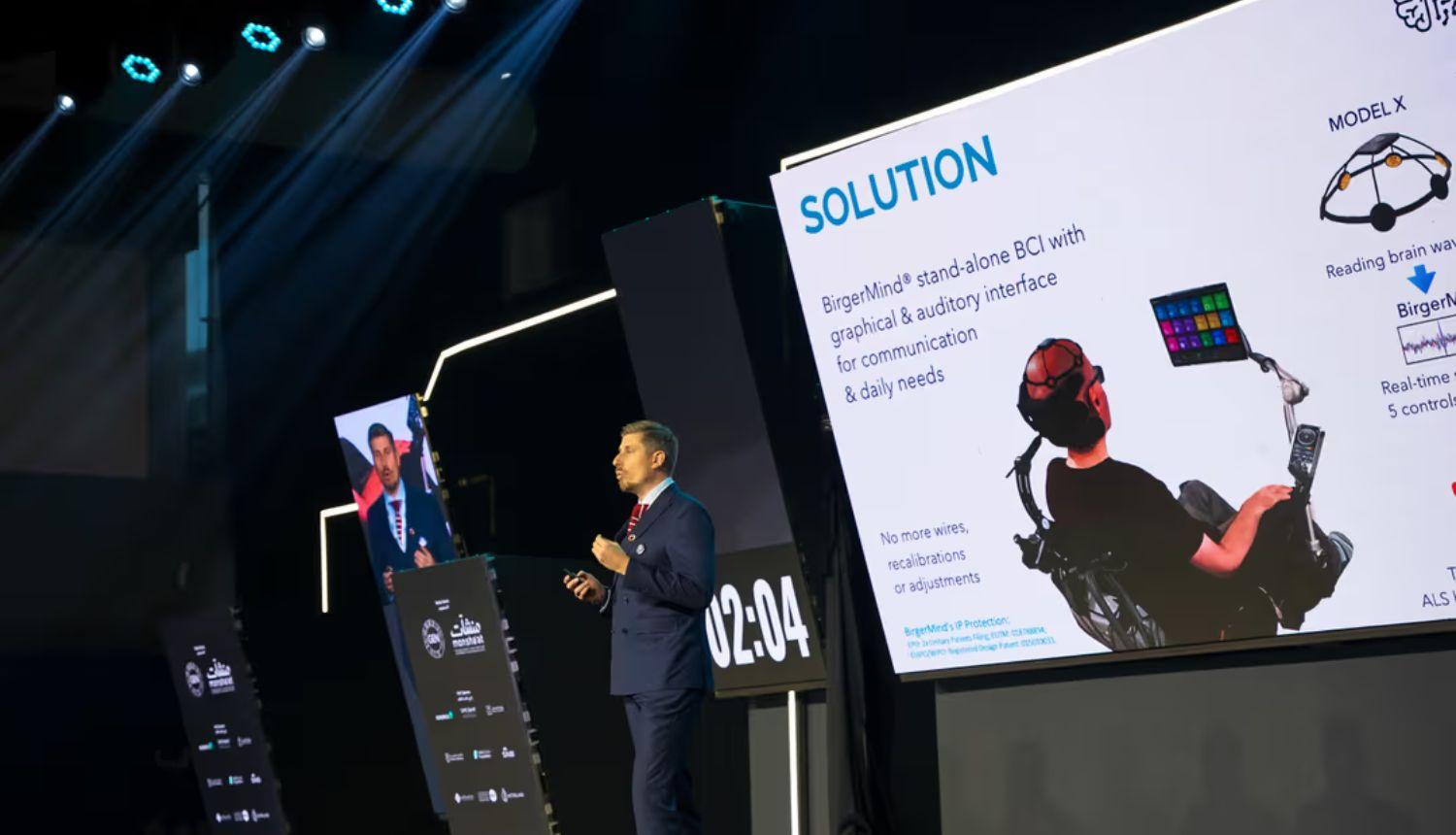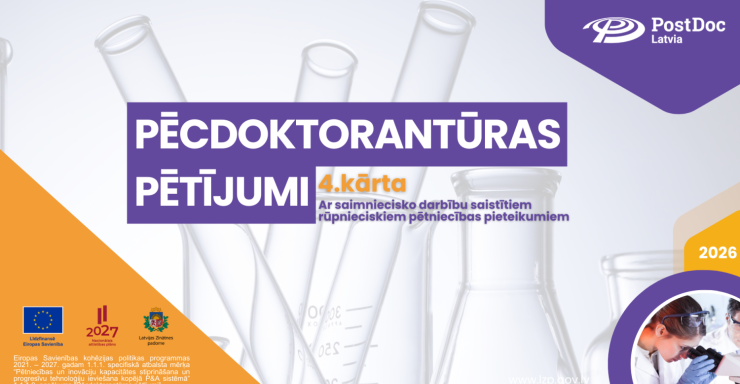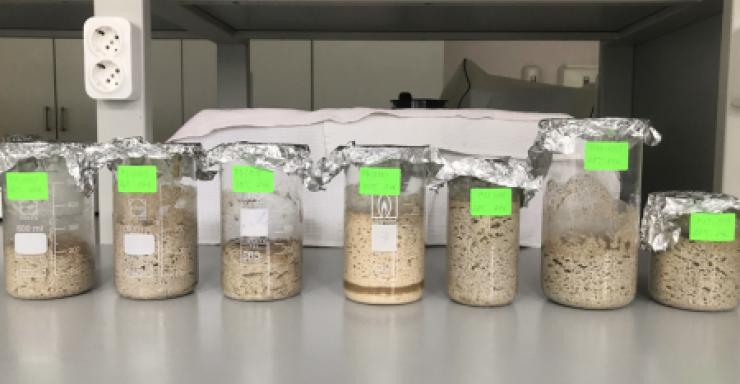Start-up BirgerMind has developed a non-invasive brain-computer interface opening up new possibilities for people with reduced mobility. The device looks like a light headband, it reads the brain's electrical activity, analyses it with artificial intelligence algorithms, and converts it into commands on a computer. Brain activity can be converted into text or synthesized speech, giving people who have lost their voice and ability to communicate a new way to do so. The company is currently patenting and commercializing the technology and hopes to open a production facility in Latvia and start mass production within the next two years.
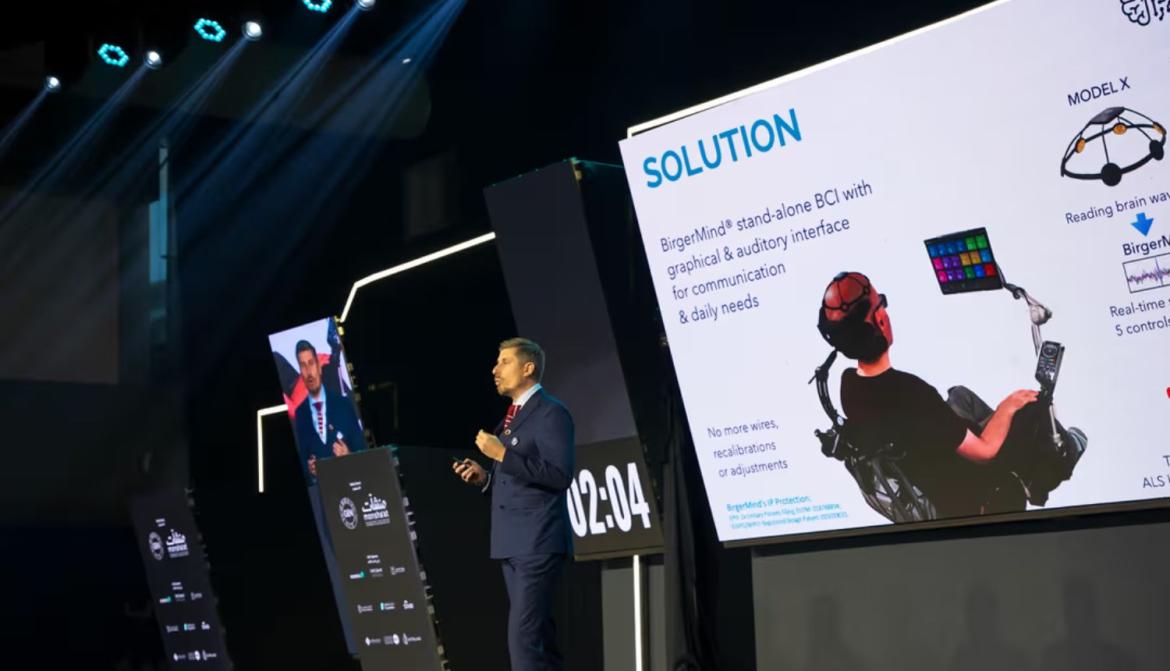
The company’s founder Juris Kļonovs began working on the idea which would eventually become the BirgerMind technology back in 2007, while studying at Ventspils University College and participating in an exchange programme at National Chung Cheng University in Taiwan. There, specialising in robotics and artificial intelligence technologies, he sought a solution that would allow paralysed people to communicate with the world using only their thoughts.
A decisive turning point came later, during his studies at Aalborg University in Denmark, where Juris met Birger Bergman Jepesen who suffered from amyotrophic lateral sclerosis (ALS) – a severe and progressive disease that gradually paralyses the body while leaving the mind clear. For people with ALS, devices that track eye movements are often the only means of communication. However, Birger, whose eye muscles had already been affected by the disease, complained that such solutions were tiring and made communication painfully slow.
To help Birger, Juris developed the first prototype that read his brain waves and allowed him to write without eye movements. This technology completely changed Birger’s daily life – even in the late stages of his illness, he was able to communicate with the world, write messages, and even fly a drone to see his house and surroundings from a bird’s eye view.
This friendship and respect for Birger also gave rise to the company’s name: BirgerMind. Based on the experience of Birger and others, Juris continued to improve the device during his doctoral studies (2012–2016), developing increasingly accurate machine learning methods for interpreting brain waves. Over the years, several generations of devices have been created, each inching closer to a synergy between the human mind and technology.
The start-up BirgerMind was founded in 2021 after winning the EIT Jumpstarter competition. That was the moment when the technology was mature enough for certification and commercialisation, says Juris. The creation of the company and development of its technology were funded both by the founders’ own resources, earned through their work in IT, and by state support tools: the LIAA business incubator in Liepāja and digitisation programmes, several innovation vouchers, and tax breaks for start-ups.
"Unlike invasive technologies that require an implant in the head, our device is completely non-invasive, comfortable, and easy to use. It looks like a headband equipped with sensors that read brain signals in a specific region of the brain, interpret them, and convert them into actions – for example, allowing you to control a computer or tablet. One of its main functions is typing and voice synthesis for communication, but the device’s potential goes much further – it can be adapted for work, entertainment, and other needs," Juris explains.
He is proud that the technology was developed in its entirety in Latvia: from microchips and sensors to software code. Whereas some components were previously manufactured abroad, the entire supply chain is now provided locally. The core of the company consists of engineers and scientists who work closely with universities and world-class medical professionals. “We are united by a genuine interest in understanding human physiology, biomechanics, and the nuances of medicine,” says Juris, emphasising that this curiosity is one of the driving forces behind BirgerMind.
The technology consists of three main parts: hardware with sensors and electronics that capture brain signals, firmware with algorithms for analysing and interpreting them, and software with a user interface that converts thoughts into text or commands for the computer. The system only needs to be calibrated once – the artificial intelligence learns the brain signals of a specific user and can work for years without recalibration. Maintenance is also simple: caregivers receive instructions on how to care for the sensors and clean the device.
To date, the device has been tested by more than 50 patients, mainly abroad – in Denmark, Sweden, Norway, and Italy. Their feedback has been instrumental in refining the technology to its current version.
"Patients, their relatives, and patient organisations have been one of the main driving forces behind our development. They help us understand what users really need, notice differences, and improve the functionality of the device," says Juris.
ALS, or amyotrophic lateral sclerosis, is one of the most serious neurological diseases. Perhaps the most famous ALS patient was physicist Stephen Hawking, who communicated with the world through a computer. As Juris points out, as ALS progresses and patients enter palliative care, the most important things are automated feeding, breathing, and communication. The latter has become BirgerMind’s mission.
“Communication means dignity and quality of life. When a person can say ‘thank you’ and communicate with their loved ones, it changes everything for them,” says Juris.
Although the device was created for people with mobility impairments, especially ALS patients, its potential extends far beyond that. It is a platform with extensive customisation options, and Juris admits that, due to the patenting process, he cannot publicly discuss all of its features at this time. However, over the years, the device has been adapted to the individual needs of each patient, so that people can not only communicate, but also work, use social networks, and pass the time, for example, by playing chess.
The company is currently actively participating in LIAA international exhibitions and trade missions to promote the technology and attract cooperation partners. Meanwhile, the patenting process continues, and the company has already signed letters of intent with patient organisations in several European countries that are ready to purchase the devices as soon as certification is complete.
"Without LIAA support, we would not be where we are today. These programmes helped not only to finance the development of the technology, but also to establish contacts with European clinics and partners. More importantly, working with LIAA made us feel that we were not alone in this process. The people at the incubator, as well as LIAA staff at the representative offices in Riga, Liepāja, Ventspils, and Saldus always helped us solve practical issues and, if I may say so, even provided a kind of psychological support, which is very important when working with such complex technology," says company founder Juris Kļonovs.
Currently, BirgerMind can produce devices in small batches, but the plans are ambitious: to start mass production in Latvia within the next two years. The company plans to use its own resources, as well as EU funds and other available support programs, to set up the production facility.
Information material prepared with the support of the European Regional Development Fund
